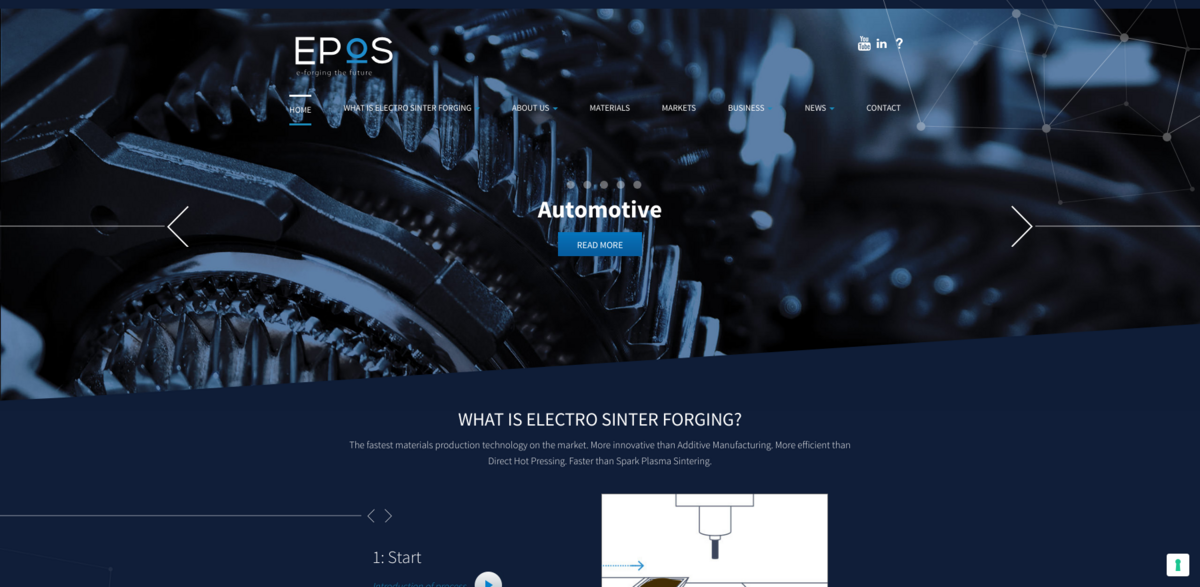What is Electro Sinter Forging?
Electro Sinter Forging, or ESF, is shaking up the world of materials production. Imagine sintering — that’s the process of compacting and forming materials — happening in less than a second. Yep, less than one second! This technology combines pressing and sintering into a single, lightning-fast action. It’s not just fast; it’s a game-changer, promising to simplify and streamline the traditional press-and-sinter workflow. The result? A production method that’s lean, energy-efficient, eco-friendly, and delivers top-notch quality. ESF is truly the fastest industrial sintering technology on the market, and it’s poised to revolutionize how metals and composites are made.
Main Benefits of Electro Sinter Forging
So, what makes ESF stand out? Here’s the lowdown:
- A complete sintering cycle in under one second — talk about speed!
- Combines pressing and sintering in one seamless step, cutting down process complexity.
- Enables the development of a whole new range of alloys, opening doors to innovative materials.
- Processes nano-crystalline pure metals, alloys, and composites to near full density with ease.
- No vacuum needed — simplifying the setup and reducing costs.
- Uses very low energy per piece, making it an eco-friendly choice.
- Allows for complete mould changes in less than 30 minutes — flexibility at its best.
Materials and Market Versatility
One of the coolest things about Electro Sinter Forging? Its versatility. The same machine, with very similar tooling, can handle everything from low melting point aluminum to tough, refractory metals like molybdenum and tungsten. This means it’s not just a one-trick pony — it’s suited for a wide range of markets and products. Whether it’s research and development or full-scale production, ESF adapts seamlessly. Industries like watchmaking, rare earth magnets, cutting tools, jewelry, and high-performance materials all stand to benefit from this technology’s flexibility.
Energy Efficiency and Environmental Impact
In today’s world, energy consumption and environmental footprint are huge concerns. ESF addresses these head-on. By combining pressing and sintering into one rapid step, it slashes the energy needed per piece. No vacuum chambers, no lengthy heating cycles — just fast, efficient production. This not only cuts costs but also reduces the carbon footprint of manufacturing processes. It’s a win-win for manufacturers and the planet alike. Plus, the ability to change moulds quickly means less waste and more sustainable production runs.
Innovations in Alloy Development
Because ESF operates at such high speed and under unique thermodynamic conditions, it opens up exciting possibilities in alloy development. The process creates thermodynamically metastable states, which means new alloys that were previously difficult or impossible to produce can now be developed. Nano-crystalline metals and composites reach near full density without the usual complications. This paves the way for materials with enhanced properties, tailored for specific applications. It’s a fresh frontier for materials science, driven by the capabilities of ESF.
Project Impact on Sustainable Development Goals (SDGs)
- SDG 9: Industry, Innovation, and Infrastructure — fostering innovation in manufacturing technologies.
- SDG 12: Responsible Consumption and Production — promoting energy-efficient and eco-friendly production methods.
- SDG 13: Climate Action — reducing carbon footprint through low-energy processes.
- SDG 7: Affordable and Clean Energy — minimizing energy use in industrial processes.
Contact and Company Information
EPoS Technologies SA is the company behind this breakthrough technology. Based in Switzerland, their headquarters are located at Zone Industrielle du Vivier 22, CH-1690 Villaz-St-Pierre. For more information, they can be reached by phone at 0041266537340 or via email at info@eposintering.com. Administrative inquiries go to admin@eposintering.com. EPoS is all about eForging — the fastest, cleanest, and leanest materials production technology out there, designed to manufacture metals and metal matrix composites with speed and precision.


















